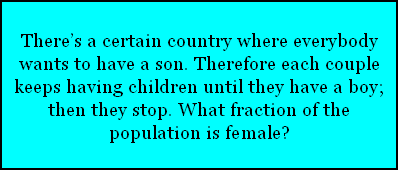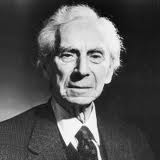Happy New Year, one and all. I’ll see you in 2011.
Monthly Archive for December, 2010
 It has been said of Lubos Motl that he’s hard to ignore, but it’s always worth the effort. I will, soon enough, take this advice to heart. But not quite yet. Lubos’s penchant for twisting other people’s words, just so he can have something to argue about, is well known and widely remarked. As his most recent victim (though “victim” is of course too strong a word, no actual harm having been done), I thought it would be both fun and instructive to challenge him to a bet. True to form, he continued to bluster but of course refused to back up his misrepresentations with actual cash.
It has been said of Lubos Motl that he’s hard to ignore, but it’s always worth the effort. I will, soon enough, take this advice to heart. But not quite yet. Lubos’s penchant for twisting other people’s words, just so he can have something to argue about, is well known and widely remarked. As his most recent victim (though “victim” is of course too strong a word, no actual harm having been done), I thought it would be both fun and instructive to challenge him to a bet. True to form, he continued to bluster but of course refused to back up his misrepresentations with actual cash.
Now of course Lubos will say that it is I who am twisting words, and in particular that I either “changed the question” or “changed the answer” (or both) between the original post and the offer to bet. That, however, won’t wash, since I’ve agreed, as part of the terms of the bet, to let an impartial panel of statistics professors determine the answer to the question as it was originally posed. So even if I had changed the question (which I haven’t), this would prevent me from getting away with it. (And no, I haven’t changed the answer either. If Lubos claims I have, we can put that to the stats profs also.)
I’m feeling annoyed enough to say a little more along these lines, but first I’d like to make it crystal clear that my annoyance does not extend to readers who are still puzzling this out. The problem with Lubos isn’t that he’s got it wrong; it’s that he’s not the least bit interested in getting it right. A few particulars:

|
The great Ronald Coase is 100 years old today.
One year ago today, he celebrated with a 100th birthday party, though he was only 99. I’m not sure what festivities are planned for today but I hope it’s a very good day for him. Also one year ago today, I published a 99th birthday tribute here on this blog. I’m re-running it today. |
In the theory of externalities—that is, costs imposed involuntarily on others—there have been exactly two great ideas. The first, forever associated with the name of Arthur Cecil Pigou (writing about 1920) is that things tend to go badly when people can escape the costs of their own behavior. Factories pollute too much because someone other than the factory owner has to breathe the polluted air. Nineteenth century trains threw off sparks that tended to ignite the crops on neighboring farms, and the railroads ran too many of those trains because the crops belonged to someone else. Farmers keep too many unfenced rabbits when they don’t care about the lettuce farmer next door.
 Last week I posted a little brain teaser that shows up frequently in recreational puzzle books — and reportedly in Google job interviews. The interesting thing about that puzzle is that the “official” answer is wrong. Not only that, but it’s wrong for an interesting reason.
Last week I posted a little brain teaser that shows up frequently in recreational puzzle books — and reportedly in Google job interviews. The interesting thing about that puzzle is that the “official” answer is wrong. Not only that, but it’s wrong for an interesting reason.
I explained the official answer, I explained exactly where it goes wrong, and I explained how to get the right answer, citing Douglas Zare’s post here as inspiration.
The physicist Lubos Motl, however, still defends the official “50%” answer on his own blog. I am therefore offering to bet him $15,000 that I’m right (with detailed terms described below). If you agree with Lubos, this is your chance to get in on the action. I will take additional bets up to $5000 per person from all comers until such time as I decide to cut this off. You can place your bet by commenting on this post with the amount you’d care to stake. Be sure to include your email address (which does not show up in the post) so I can email you and verify that you’re for real.
I was going to wait a few days before posting the answer to yesterday’s puzzler, but we’re up well over 100 comments already, the holidays are almost upon us, and I think it’s time to settle this so you can all give your full attention to whatever festivities you’ve got coming up.
Here’s the puzzle again:

More precisely: What fraction of the population should we expect to be female? That is, in a large number of similar countries, what would be the average proportion of females?
Stop reading here if you don’t want spoilers:
 There’s a certain country where everybody wants to have a son. Therefore each couple keeps having children until they have a boy; then they stop. What fraction of the population is female?
There’s a certain country where everybody wants to have a son. Therefore each couple keeps having children until they have a boy; then they stop. What fraction of the population is female?
Well, of course, you can’t know for sure, because, by some extraordinary coincidence, the last 100,000 families in a row might have gotten boys on the first try. But in expectation, what fraction of the population is female? In other words, if there were many such countries, what fraction would you expect to observe on average?
I first heard this problem decades ago, and so, perhaps, did you. It comes up in job interviews at places like Google. The answer they expect is simple, definitive and wrong.
 Bertrand Russell, that most rational of men, was nonetheless plagued by intermittent depression and the occasional nightmare. Including this one, as reported by Russell’s confidante, the mathematician G.H. Hardy:
Bertrand Russell, that most rational of men, was nonetheless plagued by intermittent depression and the occasional nightmare. Including this one, as reported by Russell’s confidante, the mathematician G.H. Hardy:
[Russell] was in the top floor of the University Library, about A.D. 2100. A library assistant was going round the shelves carrying an enormous bucket, taking down books, glancing at them, restoring them to the shelves or dumping them into the bucket. At last he came to three large volumes which Russell could recognize as the last surviving copy of Principia Mathematica. He took down one of the volumes, turned over a few pages, seemed puzzled for a moment by the curious symbolism, closed the volume, balanced it in his hand and hesitated….
Principia Mathematica, to which Russell had devoted ten years of his life, was his (and co-author Alfred North Whitehead‘s) audacious and ultimately futile attempt to reduce all of mathematics to pure logic. It is a failure that enabled some of the great successes of 20th century mathematics. And — the first volume having been published in December, 1910 — this is its 100th birthday.
According to U.S. District Judge Henry E. Hudson, the same government that requires you to buy retirement insurance (via Social Security) is constitutionally barred from requiring you to buy health insurance.
Apparently some idiot lawyers have gotten it into their heads that the Social Security mandate is okay because it’s called a “tax”, whereas the Obamacare mandate is not okay because it’s enforced by what’s called a system of “fines”. From which I infer that if the government taxes you $1000 and uses it to buy you some health insurance, that’s constitutional. Or, if the government gives you a tax credit for buying insurance (after raising taxes to cover the cost of everyone’s credits, of course), then that’s constitutional — just as tax credits for home insulation are constitutional. Whereas if they just require you to buy $1000 worth of health insurance directly, that’s not constitutional even though it has exactly the same consequences as other policies that are constitutional. From which I infer that the law is an ass.
Tyler Cowen asks: What variable best predicts your number of sex partners? My answer, which I stand by, was that it’s the same variable that best predicts your number of tennis partners, your number of checkers partners, and your number of visits to Disneyland — namely preferences. But Jason Malloy of Gene Expression steps in with something a little more empirically verifiable. Drawing on data from the respected General Social Survey, he’s correlated number of partners with everything from patriotism to empathy to “ever been punched” (all self-reported), and has invited me to share his results with you. Number of sex partners (also self-reported) is defined as number of partners since your 18th birthday. Jason’s calculations are restricted to heterosexual couplings. A negative number means that that a high response to the variable predicts fewer sex partners and a positive number means that a high response predicts more.
A few scattered thoughts on the great compromise (numbered for the convenience of commenters, so you can easily say which part you’re responding to):
- There were never any such thing as a “Bush tax cut”. There were only tax deferrals. In the absence of spending cuts, lower taxes today mean higher taxes tomorrow. So all this talk about how, in the absence of an extension, the average family will pay so-and-so many more thousands in taxes — it’s sheer balderdash. We will collectively pay exactly the same amount in taxes, present and future combined, whether or not this extension goes through.
- Although the average long-run tax burden is unaffected, changes in the tax code can of course shift the burden from one class of taxpayers to another. The Bush “tax cuts”, for example, probably made the tax code somewhat more progressive, shifting the burden from the poor to the rich. (You might have heard the opposite, but I suggest paying more attention to numbers than to rhetoric.)
 Today I want to tell you about the single most counterintuitive-but-true thing I’ve ever heard.
Today I want to tell you about the single most counterintuitive-but-true thing I’ve ever heard.
Suppose you’re observing something that changes over time — say the Dow Jones average, or the temperature in Barrow, Alaska, or the number of people who have been shot by terrorists so far this year. Suppose you have absolutely no prior information about how this thing behaves — in particular, you might have no way of knowing whether it changes continuously (like the temperature) or whether it’s subject to sudden changes (like the number of terrorist victims). You have no formula for it; you don’t even know whether there is a formula. It could be absolutely anything.
Paul Krugman writes that trade does not equal jobs and concludes that trade restrictions cannot even in principle trigger a depression. After all, restricting trade means restricting exports (less jobs!) but it also means restricting imports (more jobs!) so everything washes out.
Well, let’s try an extreme example. Suppose I prevent everyone in America from trading with anyone outside their own households. We’d eat only what we could raise in our own gardens, burn only the fuel we could gather from our own backyards, and wear only the clothes we could make for ourselves. In other words, we’d all be living pretty much at the subsistence level. Would you be willing to call that a Depression? I would. Krugman, apparently, would not.
Last week I posed a (perhaps imperfectly remembered) problem from Nick Kiefer’s course on Decision Theory. I’m very sorry that I haven’t found time to work out a complete solution (or even to read carefully through all the comments). Today I’ll post some hints from my notes toward a solution. Warning One: Only the math nerds will care about this post. Warning Two: This has all been double checked, but none of it’s been triple checked. It could be wrong.
The goal is to guess Nick’s secret number, which is drawn randomly from a uniform distribution on the numbers from 0 to 100. Each day, he draws a new “Number of the Day” and tells you whether it’s larger or smaller than the secret number.
 |
God created the integers. All else is the work of man. —Leopold Kronecker |
The problem with knowledge is that you have to start somewhere. Once you know something, you can start deducing other things. But how do you know the first thing?
Descartes’s famous solution was “I think, therefore I am”. I have direct knowledge of my own thoughts, and this in turn tells me that I exist. Now we can go on.
Mathematics, like all other knowledge, needs a starting point. Most of our mathematical knowledge is deduced from prior mathematical knowledge. I know that every positive integer is the sum of four squares because I know how to deduce this fact from other things I know. But where do I start?
There seems to be a widespread misconception (widespread, that is, among non-mathematicians — mathematicians know better) that all we know is what we can derive from axioms. This is wrong for several reasons. Two of these I’ve blogged about repeatedly in the past (e.g. here, here, and here and here), but the third is even more fundamental:
Things have gotten a little busy around here (in entirely a good way), so blog posts are likely to appear a little less frequently for the next couple of weeks — maybe two or three times a week instead of the usual five. I hope yesterday’s puzzle will keep you entertained for another day or two. See you soon!

